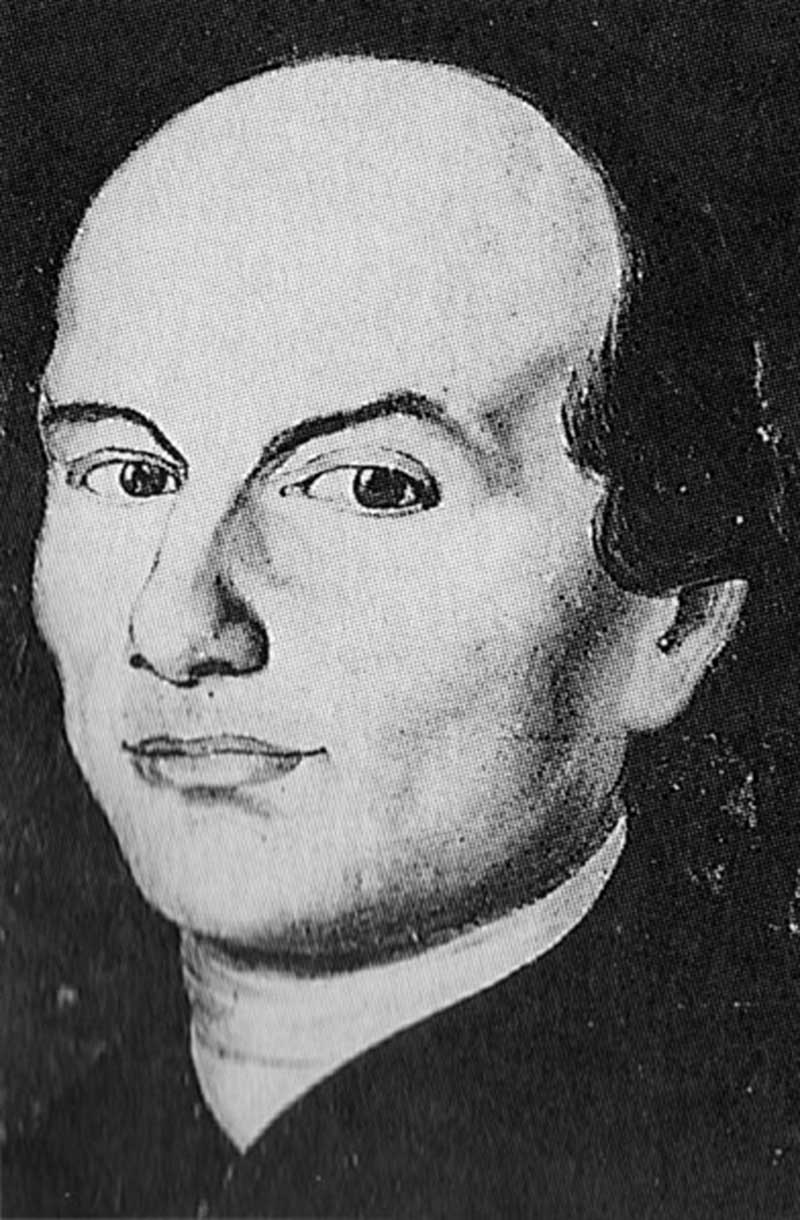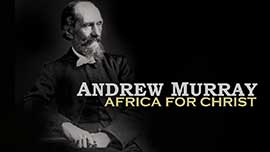GEORG SCHMIDT SUFFERED AGAIN AND AGAIN FOR THE GOSPEL

[Above: Georg Schmidt, early missionary to South Africa —public domain, Af.Wikipedia Lêer:Georg Schmidt.jpg]
FROM THE TIME Georg Schmidt was sixteen, he had one unswerving ambition: to win souls for Christ. But he also had a penchant for getting into trouble with authorities. Born in Moravia in 1709, he walked to Herrnhut, Saxony, Germany, in the winter of 1726, to join Moravians who had migrated to escape Catholic persecution. They were experiencing a spiritual revival that would make them a worldwide influence.
Preaching at nearby Zittau, the teenage Schmidt was locked up for ten days. Undeterred, in 1728 he set out with an older Moravian, Melchior Nitschmann, intending to preach in Catholic Austria. On the way they shared the gospel in Bohemia. Catholic authorities arrested and imprisoned them in Schildberg. Fettered, they were set to forced labor, often at degrading jobs, and beaten or kicked if they slowed down from exhaustion. Fed only bread and water and cooped at night in cold and clammy cells, they suffered terribly. Nitschmann soon died. Schmidt endured the treatment three years then was moved to Brno where he had to dig trenches and labor on the Spielberg fortress. After six years of miserable captivity, he agreed to convert to Roman Catholicism and was freed, making his way back to Herrnhut in 1734.
Although the Moravians accused him of faithless behavior, Schmidt still longed to win souls. The following year he preached through Southern Germany and Switzerland. To avoid difficulties, he claimed to be a Lutheran. When he returned to Herrnhut, Schmidt found himself in disgrace with the Moravian leader, Count von Zinzendorf, who was ready to dismiss him from the congregation for lying about his denominational adherence.
However, he was given another chance because a worker was needed in Africa. Friends of the Herrnhutters had observed that the Khoi Khoi of South Africa desperately needed the gospel. South Africa, ruled by the Dutch Boers, had Reformed ministers, but the Dutch considered the Khoi Khoi (to whom they had given the mocking name “Hottentots”) less than human and incapable of salvation. Just two weeks after returning to Herrnhut, Schmidt was dispatched to the Netherlands to obtain permission to enter the colony. Many delays arose. He first had to undergo a religious examination and then solicit the approval of the Dutch East India Company. Finally, more than a year after leaving Herrnhut, and following a four month voyage, Schmidt arrived in Cape Town on this day, 9 July 1737.
The Boers mocked Schmidt’s efforts, but he worked diligently to teach the Khoi Khoi. As was the Moravian practice, he worked with his hands to meet his own needs and to assist others, building his own house and cultivating his own garden. Meanwhile, he taught several Khoi Khoi to read (a skill that even many Dutch settlers lacked) and he steadfastly shared the gospel. After seven years of persistent effort, he baptized his first five converts.
Immediately Dutch authorities were alarmed. Schmidt was not ordained! Therefore he had no right to baptize. Reluctantly Zinzendorf (a properly consecrated bishop) sent ordination papers, but the Dutch rejected them. Schmidt had no recourse but to return to the Netherlands in 1743 to plead his case. The Dutch never allowed him to return to South Africa. In fact, not until fifty years later were Moravians readmitted to the African colony. Then they found an old woman whom Schmidt had baptized, whose granddaughter was able to read a Dutch Bible Schmidt had left behind.
Meanwhile Schmidt ventured to conduct mission work again in Bohemia, the land where he had been so cruelly treated years earlier. In 1752, he settled in Saxony, Germany, where he lived to be seventy-six, dying in 1785.
—Dan Graves
----- ----- -----
Another European-born minister who brought the gospel to South Africa was Andrew Murray. His story is told in Andrew Murray: Africa for Christ. Watch it at RedeemTV.
Andrew Murray: Africa for Christ can be purchased at Vision Video.







